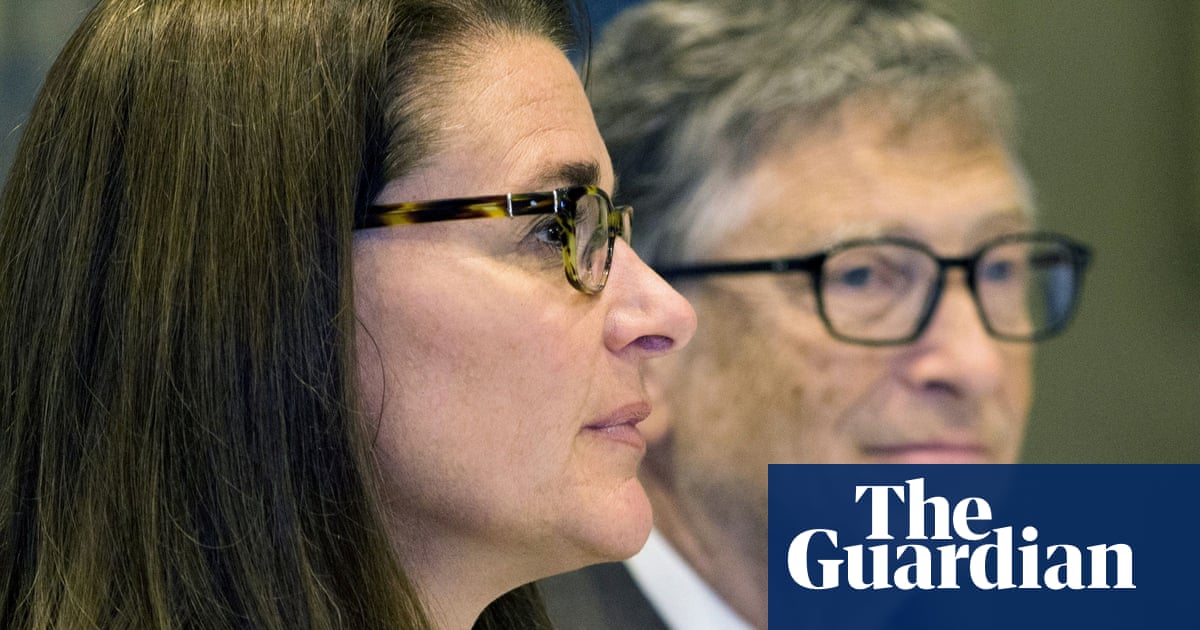
A group of global philanthropists, including Bill Gates, have pledged £93.5m to help cover the shortfall left by the UK government’s cuts to foreign aid.
After the government cut funding by about a third in the autumn spending review, many “critical” projects have stalled or been put at risk.
The consortium, according to the Sunday Times, said they did not want to see drugs wasted because health projects had been forced to close down.
The philanthropists, including the Bill and Melinda Gates Foundation, the Children’s Investment Fund Foundation, the ELMA Foundation and the Open Society Foundations, are picking up some, but not all, of the bill for these projects.
Kate Hampton, the chief executive of the Children’s Investment Fund Foundation, said: “These life-saving treatments are cost-effective investments. If they go unfunded this year, British taxpayer generosity will be wasted as clinics are closed and essential drugs expire and are thrown away.”
The archbishop of Canterbury, Justin Welby, said he was still praying for the government to restore its promises on aid. “These diseases cause unimaginable suffering and entirely preventable deaths,” he told the Sunday Telegraph.
“This emergency funding is welcome and desperately needed, but I continue to pray for the restoration of our promise to those living in extreme poverty around the world, which was to love them as our neighbour through our commitment to the 0.7% aid spending target.”
The former musician and Live Aid organiser Sir Bob Geldof said: “How disgraceful that in order to prevent the fatal consequences of Boris Johnson’s broken word, private individuals need to fill the fatal void of an illegal abandonment of the weakest of the world to their awful, inevitable fate.”
The UK was already spending proportionately less on foreign aid than Germany, which commits 0.73% of its national income to foreign aid, and it has now dropped below France at 0.53%, spending 0.5%.
Since the cuts were announced in November, charities have pleaded with the government to reverse them.
Last month, aid agencies warned the cuts had left 70,000 people without health services and 100,000 without water in Cox’s Bazar, Bangladesh, the world’s largest refugee settlement, before the deadly cyclone season.
In April, after an 85% drop in its funding, the UN Population Fund (UNFPA) said the missing £130m would have helped prevent a quarter of a million child and maternal deaths, 14.6m unintended pregnancies and 4.3m unsafe abortions.
And the same month, a consortium of 19 aid agencies made a last-minute appeal to the Foreign Office to suspend planned aid cuts to the Democratic Republic of the Congo, where a third of the population faces acute food insecurity.
The commitment to 0.7% of gross national income being spent on aid had also been a Conservative manifesto promise, which many within the Tory party were reluctant to break.
The Foreign Office minister Liz Sugg, whose brief included sustainable development, submitted her resignation at the end of last year to Boris Johnson in protest against the cut. Andrew Mitchell, a Conservative former international development secretary, and the former foreign secretary Jeremy Hunt also criticised the cuts.
But the government stood by its decision, with the chancellor, Rishi Sunak, blaming record borrowing and the national debt.
A government spokesperson said: “The UK will spend more than £10bn to improve global health, fight poverty and tackle climate change this year – making us one of the biggest aid donors in the G7.
“We have always been clear that the government will return to spending 0.7% of GNI [gross national income] on international development as soon as the fiscal situation allows.”
from WordPress https://ift.tt/3AK3FZk
via IFTTT
